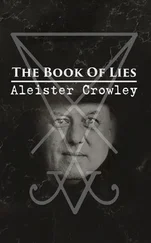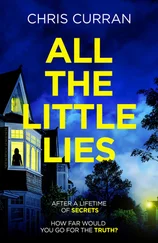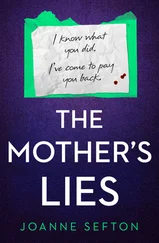"Nor I you. But there's no point in seeing each other again. Can't you see that?"
"Yes. I've just come to see it."
She waves down a passing taxi and leaves.
I walk to the stop, wait for ten minutes, and take the bus the way I do every morning, a smelly and overcrowded bus.
When I get home Mother is already up, which is unusual for her. She has her coffee in the kitchen. She smiles at me. "She's quite pretty, your little friend Sarah. What's her last name? Sarah what? What's her family name?"
I say, "I don't know, Mother. She's not my little friend. I haven't seen her for years. She's looking for old classmates, that's all."
Mother says, 'That's all? What a pity. It's time for you to have a little friend. But you're probably too awkward for girls to like you. Especially girls like that, the well-bred sort. And with your menial job and all. It would be completely different with Lucas. Yes, that Sarah is exactly the kind of girl that would suit Lucas."
I say, "No doubt, Mother. Excuse me, I'm terribly tired."
I go to bed and before falling asleep I talk to Lucas in my head the way I have for many years. What I tell him is just about what I usually do. I tell him that if he's dead he's lucky and I'd very much like to be in his place. I tell him that he got the better deal, that it is I who is pulling the greater weight. I tell him that life is totally useless, that it's nonsense, an aberration, infinite suffering, the invention of a non-God whose evil surpasses understanding.
I do not see Sarah again. Sometimes I think I see her on the street, but it's never her.
One day I go to the house where Antonia used to live, but none of the names on the mailboxes is familiar and in any case I don't know her new name.
Years later I receive a wedding notice. Sarah is getting married to a surgeon, and the addresses of both families are on Rose Hill, the richest and most elegant part of town.
I was to have a great many "little friends," girls I meet in bars around the printing press, where it is now my habit to go to before and after work. These girls are factory workers or servants; I rarely see them more than once or twice, and I bring none of them back home to introduce them to Mother.
I spend my Sunday afternoons with my boss, Gaspar, and his family. We play cards and drink beer. Gaspar has three children. The eldest daughter, Esther, plays with us; she's nearly my age and works in a textile mill where she has been a weaver since the age of thirteen. The two boys, who are slightly younger and typesetters too, go out on Sunday afternoons. They go to soccer matches or the movies or walk around town. Gaspar's wife, Anna, a weaver like her daughter, does the dishes, the laundry, and cooks the evening meal. Esther has blond hair, blue eyes, and a face that recalls Sarah's. But she isn't Sarah, she isn't my sister, she isn't my life.
Gaspar says to me, "My daughter is in love with you. Marry her. I give her to you. You're the only one who deserves her."
I say, "I don't want to get married, Gaspar. I have to look after my mother and wait for Lucas."
Gaspar says, "Wait for Lucas? Poor madman."
He adds: "If you don't want to marry Esther, it would be better if you didn't come see us again."
I do not go back to Gaspar's. From then on I spend all my free time alone at home with Mother except for the hours when I walk aimlessly around the cemetery or the town.
At the age of forty-five I become the head of another printing press, this one belonging to a publishing house. I no longer work at night but from eight in the morning to six in the evening with two hours off at lunch. My health is already very bad at this point. My lungs are filled with lead and my badly oxygenated blood is poisoned. This is called saturnism, a disease of printers and typesetters. I have stomachaches and spells of nausea. The doctor tells me to drink a lot of milk and get a lot of fresh air. I don't like milk. I also suffer from insomnia and great physical and nervous exhaustion. After thirty years of night work it is impossible for me to get used to sleeping at night.
At the new printing press we produce all kinds of texts- poems, prose, novels. The director of the publishing house often comes in to oversee our work. One day he examines my own poems, which he has found on a shelf.
"What's this? Whose poems are these? Who is this Klaus Lucas?"
I stammer because usually I have no right to print personal texts.
"They're mine. They're my poems. I print them up after work."
"You mean to say that you're Klaus Lucas, the author of these poems?"
"Yes."
He asks, "When did you write them?"
I say, "Over the past couple of years. I wrote many others, before, when I was young."
He says, "Bring me everything you have. Come to my office tomorrow morning with everything you've written."
The next morning I go to the director's office with my poems. They add up to several hundred pages, maybe a thousand.
The director hefts the package.
"All this? You've never tried to publish them?"
I say, "I never gave it a thought. I wrote for myself, to pass the time, to amuse myself."
The director laughs. 'To amuse yourself? Your poems aren't what you might call amusing, exactly. Not the ones I've read, anyway. But maybe you were more lighthearted when you were young."
I say, "When I was young, certainly not."
He says, 'True. There wasn't much to be lighthearted about in those days. But a lot of things have changed since the revolution."
I say, "Not for me. Nothing has changed for me."
He says, "At least now we can publish your poems."
I say, "If you think it's a good idea, publish them. But I beg you not to give my address or tell my real name to anyone."
Lucas came back and left again. I sent him away. He left me his unfinished manuscript. I am trying to complete it.
The man from the embassy didn't announce he was coming. Two days after my brother's visit he rings my doorbell at nine in the evening. Luckily Mother has already gone to bed. The man has curly hair and he is thin and pale. I usher him into my study.
He says, "I don't speak your language very well, so forgive me for being blunt. Your brother, that is to say your alleged brother, Claus T., committed suicide today. He threw himself under a train at East Station at two-fifteen this afternoon, just as he was being repatriated. He left a letter for you at our embassy."
The man hands me an envelope on which is written, 'To the attention of Klaus T."
I open the envelope. On a postcard I read: "I would like to be buried beside our parents."
I hand the card to the man from the embassy.
"He wants to be buried here."
The man reads the card and asks, "Why did he sign it Lucas? Was he really your brother?"
I say, "No. But he believed it so much that I can't refuse him this."
The man says, "How strange. Two days ago, after his visit with you, we asked him if he had found anyone from his family. He said no."
I say, "It's the truth. We weren't related at all."
The man says, "But you'll still permit him to be buried beside your parents?"
I say, "Yes. Beside my father. He's the only one in my family who's dead."
We follow the hearse, the man from the embassy and I. It's snowing. I'm carrying a bouquet of white carnations and another of red. I bought them at a florist. There are no more carnations in our garden, even in summer. Mother plants all sorts of flowers, but not carnations.
A new grave is dug next to my father's. My brother's coffin is lowered into it, and a cross with a different spelling of my name is erected over it.
I come to the cemetery every day. I look at the cross inscribed with Claus's name and I wonder if I shouldn't replace it with another bearing the name of Lucas.
Читать дальше
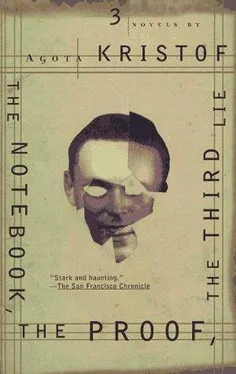




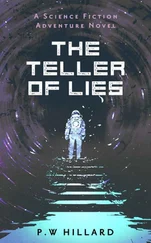
![Джеффри Дивер - Where the Evidence Lies [A Lincoln Rhyme Short Story]](/books/403782/dzheffri-diver-where-the-evidence-lies-a-lincoln-r-thumb.webp)
